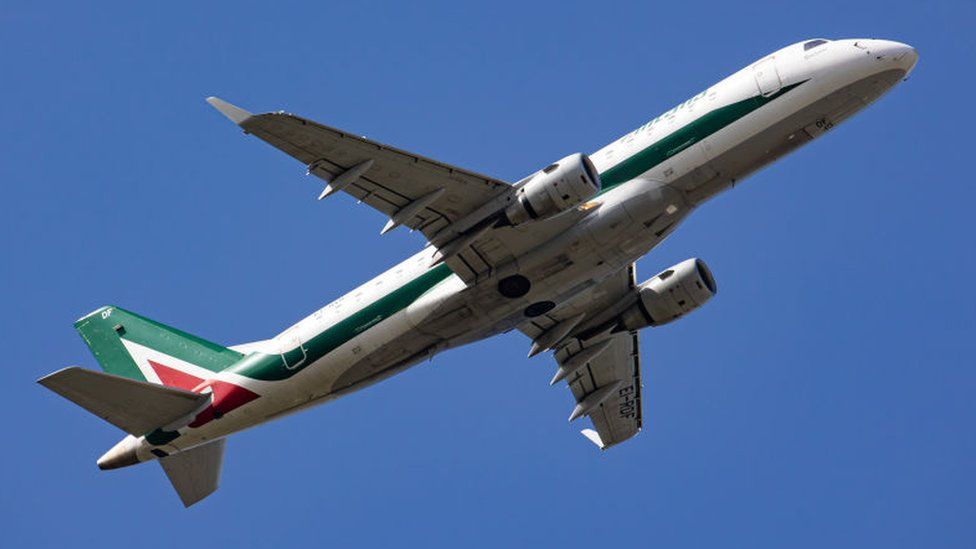No more airplane mode? EU to allow calls on flights

Airline passengers in the European Union (EU) will soon be able to use their phones to full effect in the sky.
The European Commission ruled airlines can provide 5G technology on board planes, alongside slower mobile data.
This could mean flyers will no longer be required to put their phone on airplane mode – though the specifics of how it will be implemented are unclear.
The deadline for member states to make the 5G frequency bands available for planes is 30 June 2023.
This will mean people can use all their phone’s features mid-flight – enabling calls as well as data-heavy apps that stream music and video.
Thierry Breton, EU Commissioner for the Internal Market, said the plan would “enable innovative services for people” and help European companies grow.
“The sky is no longer a limit when it comes to possibilities offered by super-fast, high-capacity connectivity,” he said.
The end of airplane mode?
The EU Commission has reserved certain frequency bands for aircraft since 2008, allowing some services to offer mid-air internet access.
But this service has been historically slow, as it relied on equipment to connect people via a satellite between the aeroplane and the ground.
The new system will be able to take advantage of the much faster download speeds provided by 5G, which according to mobile network EE can be over 100Mbps – enabling a film to be downloaded in just a few minutes.
Dai Whittingham, chief executive of the UK Flight Safety Committee, told the BBC that airplane mode was historically important due to a lack of knowledge about how mobile devices affect aircraft.
“There was a concern they could interfere with automatic flight control systems,” he said.
“What has been found with experience is the risk of interference is very small. The recommendation has always been that once you are in flight, devices should be in in airplane mode.”
There has been a concern in the US that 5G frequencies could interfere with flights, and even potentially lead to erroneous altitude measurements.
But Mr Whittingham said this is not an issue in the UK and the EU.
“There is much less prospect of interference,” he said, “We have a different set of frequencies for 5G, and there are lower power settings than those that have been allowed in the US.
“The travelling public wants 5G. The regulators will open up that possibility, but there will be steps that will be taken to ensure that whatever they do is safe.”
The Civil Aviation Authority – the regulator responsible for the safety of aircraft within the UK – has been approached by the BBC for comment.
-
-
7 hours ago

-
-
-
13 October

-
-
-
28 January 2020

-
